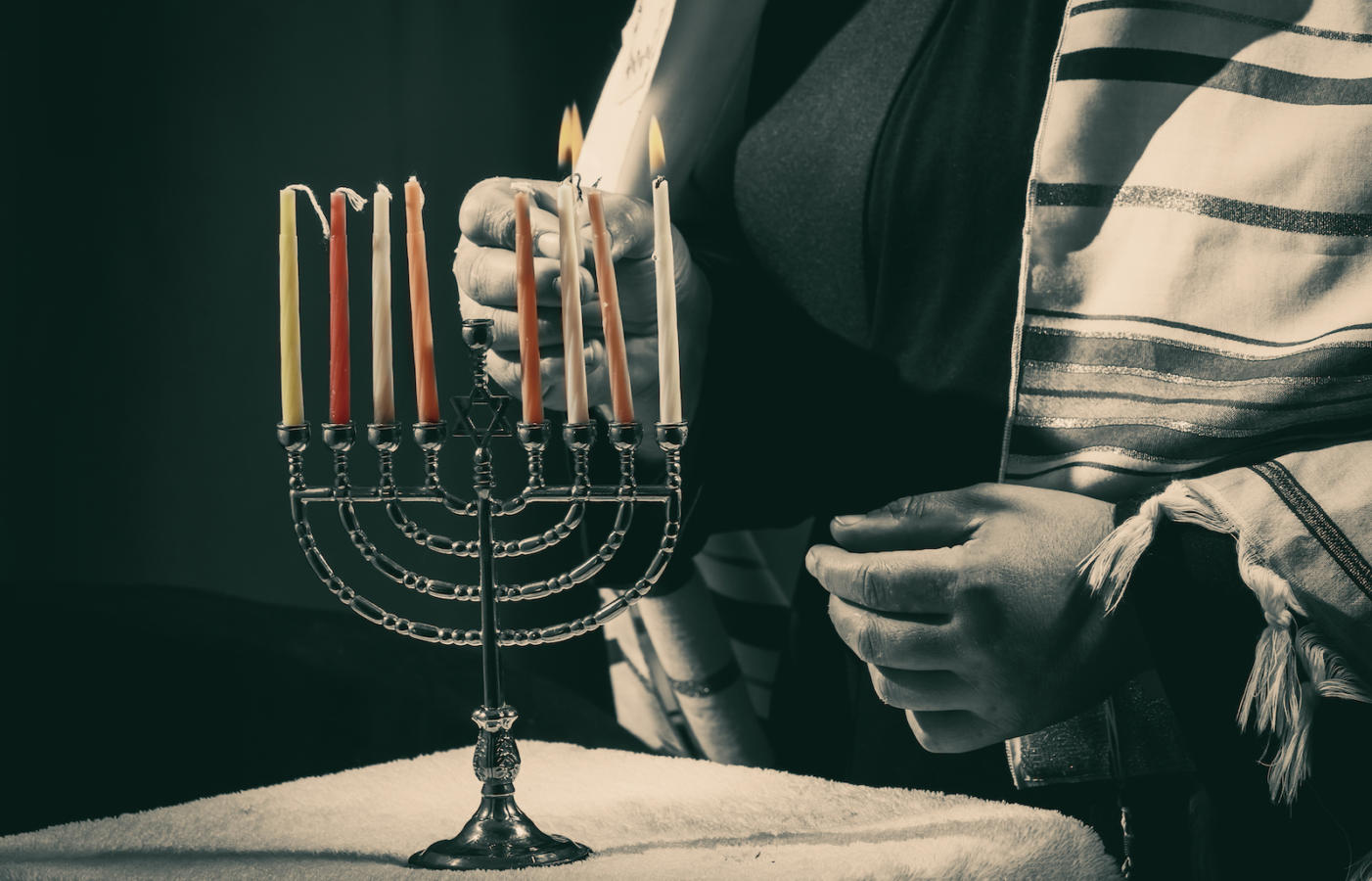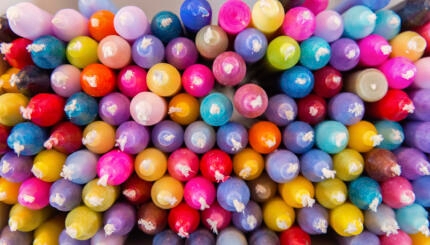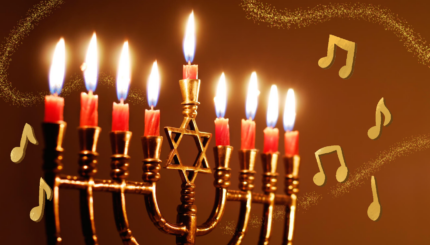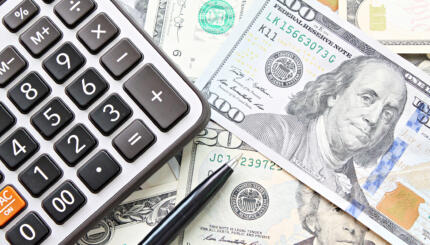Though not as elaborate as other Jewish holiday services, there are some special additions to daily worship services on Hanukkah.
Each day of the holiday we read from the Torah (Numbers 7:1-8:4) about the offerings brought by the chieftains of each tribe for the dedication of the Tabernacle. The rabbis in the Talmud stipulated that we should recite Hallel, the verses of praise, during daily worship services. Additionally, there’s a paragraph that we insert into the Amidah and the Grace After Meals called Al Hanisim (“Of the Miracles”) throughout the duration of the holiday.
And yet, Hanukkah is not considered a holy day where we must take off from work and spend our mornings in prayer. We don’t chant the Haftarah during the week nor do we add the additional Musaf service.
This may because Hanukkah, unlike many Jewish holidays, is a home-bound ritual. It is meant to be practiced in the home — with our families or, even if we’re alone, on our own at home.

Help us keep Jewish knowledge accessible to millions of people around the world.
Your donation to My Jewish Learning fuels endless journeys of Jewish discovery. With your help, My Jewish Learning can continue to provide nonstop opportunities for learning, connection and growth.
That is most likely one of the reasons that Hanukkah has maintained its strength over the years. You don’t have to go to synagogue. That’s not the main part of the celebration.
Eating and drinking and lighting the candles and being together on Hanukkah — that’s the real celebration, and it’s not focused so much on prayer. Hanukkah is not a biblical holiday. It’s not in the Torah. So in some sense it doesn’t carry the same weight as the Jewish festivals, where it’s forbidden to work or use money or any of the other restrictions. In fact, there are no restrictions on Hanukkah. It’s just a celebratory time.
Since there aren’t a lot of rules we have to follow on Hanukkah, we can own it a little bit differently. When people are at home practicing the holiday, they can be a bit more creative with it, which perhaps better reflects who we are today as Jews.
Rabbi Danielle Upbin teaches widely on Jewish spirituality, meditation and yoga. She is also the associate rabbi and prayer leader at Congregation Beth Shalom in Clearwater, Florida. Her musical release, “Reveal the Light,” is available on Amazon, iTunes, and Spotify or through her website, danielleupbin.com.
Explore Hanukkah’s history, global traditions, food and more with My Jewish Learning’s “All About Hanukkah” email series. Sign up to take a journey through Hanukkah and go deeper into the Festival of Lights.



